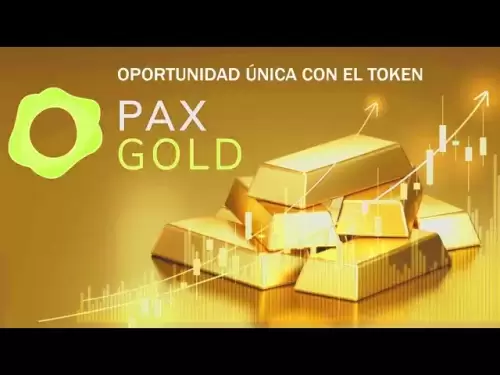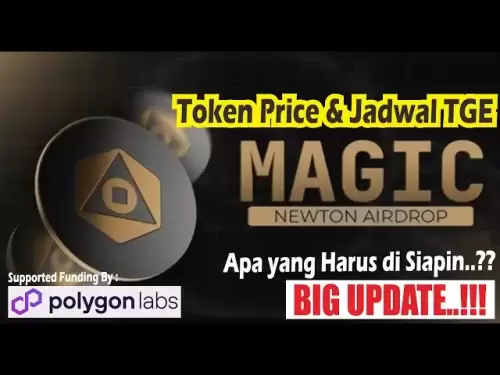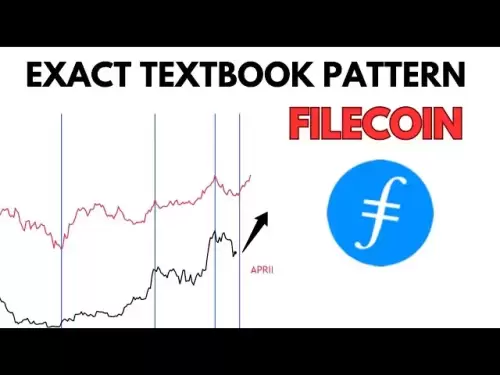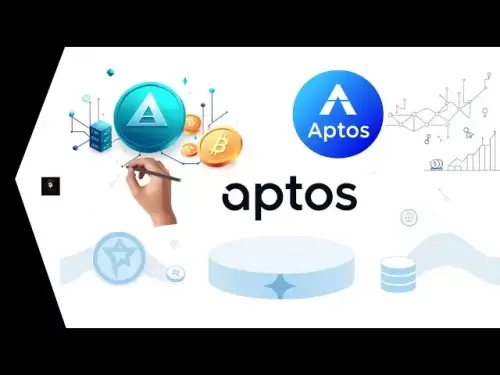-
 Bitcoin
Bitcoin $99,594.2189
-3.59% -
 Ethereum
Ethereum $2,188.5793
-9.00% -
 Tether USDt
Tether USDt $1.0001
-0.02% -
 XRP
XRP $1.9745
-5.82% -
 BNB
BNB $608.9511
-3.73% -
 Solana
Solana $130.4575
-5.93% -
 USDC
USDC $1.0000
0.01% -
 TRON
TRON $0.2637
-3.59% -
 Dogecoin
Dogecoin $0.1493
-5.97% -
 Cardano
Cardano $0.5322
-6.72% -
 Hyperliquid
Hyperliquid $33.9044
3.33% -
 Bitcoin Cash
Bitcoin Cash $449.6411
-5.46% -
 UNUS SED LEO
UNUS SED LEO $8.9629
0.43% -
 Sui
Sui $2.3943
-8.35% -
 Chainlink
Chainlink $11.4402
-7.83% -
 Stellar
Stellar $0.2241
-6.49% -
 Avalanche
Avalanche $16.1489
-4.24% -
 Toncoin
Toncoin $2.7182
-5.94% -
 Shiba Inu
Shiba Inu $0.0...01040
-5.72% -
 Litecoin
Litecoin $78.7882
-4.07% -
 Ethena USDe
Ethena USDe $1.0004
-0.01% -
 Hedera
Hedera $0.1305
-7.45% -
 Monero
Monero $297.0030
-5.32% -
 Dai
Dai $0.9997
-0.02% -
 Polkadot
Polkadot $3.1834
-6.03% -
 Bitget Token
Bitget Token $3.9788
-7.03% -
 Uniswap
Uniswap $6.1327
-10.62% -
 Pepe
Pepe $0.0...08689
-8.30% -
 Pi
Pi $0.4826
-9.65% -
 Aave
Aave $219.8043
-9.69%
how to buy crypto with chase credit card
Using a Chase credit card for crypto purchases incurs high fees (2-5%) and poses risks due to market volatility, but Coinbase, Gemini, and Binance offer support for crypto purchases with Chase cards.
Jan 29, 2025 at 07:25 am
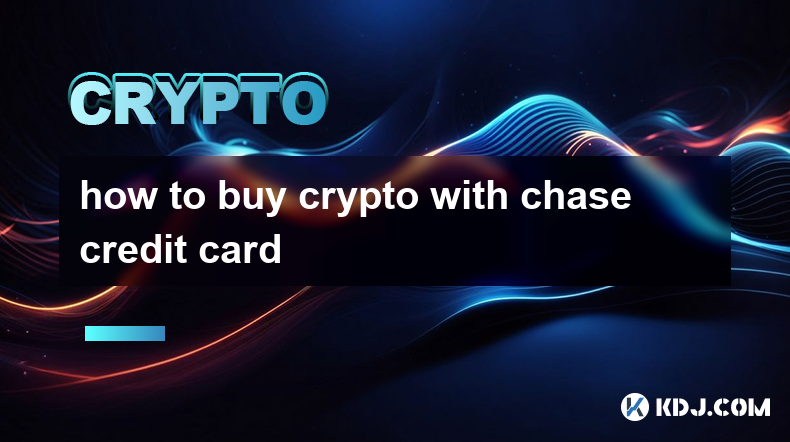
How to Buy Crypto with Chase Credit Card: A Comprehensive Guide
Key Points
- Understand the risks and fees associated with purchasing crypto with a credit card.
- Explore alternative methods for purchasing crypto if credit card purchases are not viable.
- Identify the best exchanges and payment platforms that support crypto purchases with Chase credit cards.
- Learn the step-by-step process of purchasing crypto using a Chase credit card.
- Discover additional resources and tips for optimizing your crypto purchases.
Step-by-Step Guide to Buying Crypto with a Chase Credit Card
1. Assess the Risks and Fees
- Credit card purchases of cryptocurrencies can incur high transaction fees, typically ranging from 2% to 5%.
- Some exchanges may impose additional fees for credit card transactions.
- There is significant price volatility in the crypto market, which can lead to substantial losses.
- Consider the potential financial implications before using a credit card to purchase crypto.
2. Alternative Methods if Credit Card Purchases are Not Viable
- Debit Card: Debit card purchases typically have lower transaction fees than credit cards.
- Bank Transfer: Bank transfers are slower but may incur lower fees than credit card or debit card transactions.
- Crypto-to-Crypto Exchange: Exchange existing cryptocurrencies for your desired crypto asset to avoid credit card fees.
3. Finding the Best Exchanges and Payment Platforms
- Coinbase: Supports credit card purchases for a wide range of cryptocurrencies, including Bitcoin, Ethereum, and Dogecoin.
- Gemini: Known for its high security and offers competitive fees on credit card transactions.
- Binance: A popular global exchange that provides support for credit card purchases in select regions.
4. Step-by-Step Purchase Process
- Create an Account: Register for an account on the chosen exchange or payment platform.
- Verify Identity: Submit personal information and proof of identity to comply with know-your-customer (KYC) regulations.
- Add Chase Credit Card: Add your Chase credit card to your account as a payment method.
- Select Crypto Asset: Choose the desired cryptocurrency to purchase.
- Enter Amount: Specify the amount of crypto you wish to purchase.
- Review Transaction: Check the details and any applicable fees before confirming the purchase.
5. Additional Resources and Tips
- Monitor Credit Card Statement: Regularly review your credit card statement to track crypto purchases.
- Consider Rewards Credit Card: Use a credit card that offers rewards or points for purchases to potentially earn additional benefits.
- Explore Credit Card Hacks: Some individuals may utilize loopholes or third-party services to bypass credit card fees, but this is not recommended due to potential risks.
FAQs
Q: Why can't I buy crypto with my Chase credit card?
A: Chase restricts credit card purchases of cryptocurrencies due to regulatory reasons and the inherent volatility of the crypto market.
Q: What alternative methods can I use to buy crypto if I have a Chase credit card?
A: Explore debit card purchases, bank transfers, or crypto-to-crypto exchanges as alternative options.
Q: Which exchanges support credit card purchases for cryptocurrencies?
A: Coinbase, Gemini, and Binance are reputable exchanges that offer credit card support for various cryptocurrencies.
Q: What are the risks of buying crypto with a credit card?
A: High transaction fees, market volatility, and the potential for unauthorized purchases are some of the risks associated with credit card crypto purchases.
Disclaimer:info@kdj.com
The information provided is not trading advice. kdj.com does not assume any responsibility for any investments made based on the information provided in this article. Cryptocurrencies are highly volatile and it is highly recommended that you invest with caution after thorough research!
If you believe that the content used on this website infringes your copyright, please contact us immediately (info@kdj.com) and we will delete it promptly.
- Solana, Aptos, and Stable Tokens: Wyoming's Bold Move and the Future of Finance
- 2025-06-23 08:25:12
- Ruvi AI: The Next Binance Coin? A Token Rally to Watch
- 2025-06-23 08:25:12
- Ruvi AI vs. Dogecoin: Can AI Deliver Better ROI?
- 2025-06-23 08:45:12
- SHIB, WLD, BlockDAG: Navigating Crypto's Crossroads in 2024
- 2025-06-23 08:45:12
- Ruvi AI: Revolutionizing ROI Predictions in the Crypto Space
- 2025-06-23 09:05:12
- Ruvi AI: Is This the Token Poised for Bigger ETH Gains?
- 2025-06-23 09:05:12
Related knowledge

What is Ethereum’s Slashing mechanism and how to punish malicious behavior?
Feb 20,2025 at 03:08am
Key PointsOverview of slashingDifferent types of slashing in EthereumIncentives and consequences of slashingIdentifying and reporting slashed validatorsOngoing discussions and potential improvementsEthereum's Slashing Mechanism: Punishing Malicious BehaviorEthereum's slashing mechanism is an essential tool for ensuring network security and punishing mal...

What is the verifier node of Ethereum and how to become a verifier?
Feb 19,2025 at 06:00pm
The Verifier Node of Ethereum: A Comprehensive GuideKey Points:What is a Verifier Node?How to Become a Verifier NodeResponsibilities and Rewards of a Verifier NodeMinimum Requirements for Becoming a Verifier NodePotential Difficulties in Running a Verifier Node1. What is a Verifier Node?A Verifier Node is an independent entity on the Ethereum network th...

What is Ethereum’s staking, and how to participate and earn money?
Feb 19,2025 at 04:37pm
Key Points:Understanding Ethereum's Staking MechanismSteps to Participate in StakingBenefits and Rewards of StakingSecurity and Risk ConsiderationsTechnical Requirements and Hardware OptionsPotential Challenges and Troubleshooting TipsFAQs on Ethereum StakingWhat is Ethereum's Staking?Proof-of-Stake (PoS) is a consensus mechanism used in blockchain netw...

What is Ethereum’s DAO (Decentralized Autonomous Organization) and how does it work?
Feb 20,2025 at 03:12am
Key PointsDefinition and Structure of a DAOGovernance and Decision-Making in DAOsBenefits and Use Cases of DAOsChallenges and Limitations of DAOsWhat is Ethereum's DAO (Decentralized Autonomous Organization) and How Does It Work?Definition and Structure of a DAOA Decentralized Autonomous Organization (DAO) is an innovative governance and management fram...

What is Ethereum's multi-signature wallet and how to improve security?
Feb 20,2025 at 02:18pm
Key Points:Understanding the Concept of a Multi-Signature WalletBenefits and Drawbacks of Multisig WalletsRequirements for Setting Up a Multisig WalletStep-by-Step Guide to Generating a Multisig WalletImplementing Strategies for Enhanced Security1. Understanding the Concept of a Multi-Signature WalletA multi-signature (multisig) wallet in the Ethereum e...

What is Ethereum's oracle and how to provide data for smart contracts?
Feb 21,2025 at 01:30am
Key Points:Understanding the concept of oracles in EthereumExploring different types of oraclesDetailed guide on how to provide data for smart contractsAddressing potential challenges and considerationsWhat is Ethereum's Oracle?Oracles are crucial components in the Ethereum ecosystem, enabling smart contracts to access real-world data and off-chain even...

What is Ethereum’s Slashing mechanism and how to punish malicious behavior?
Feb 20,2025 at 03:08am
Key PointsOverview of slashingDifferent types of slashing in EthereumIncentives and consequences of slashingIdentifying and reporting slashed validatorsOngoing discussions and potential improvementsEthereum's Slashing Mechanism: Punishing Malicious BehaviorEthereum's slashing mechanism is an essential tool for ensuring network security and punishing mal...

What is the verifier node of Ethereum and how to become a verifier?
Feb 19,2025 at 06:00pm
The Verifier Node of Ethereum: A Comprehensive GuideKey Points:What is a Verifier Node?How to Become a Verifier NodeResponsibilities and Rewards of a Verifier NodeMinimum Requirements for Becoming a Verifier NodePotential Difficulties in Running a Verifier Node1. What is a Verifier Node?A Verifier Node is an independent entity on the Ethereum network th...

What is Ethereum’s staking, and how to participate and earn money?
Feb 19,2025 at 04:37pm
Key Points:Understanding Ethereum's Staking MechanismSteps to Participate in StakingBenefits and Rewards of StakingSecurity and Risk ConsiderationsTechnical Requirements and Hardware OptionsPotential Challenges and Troubleshooting TipsFAQs on Ethereum StakingWhat is Ethereum's Staking?Proof-of-Stake (PoS) is a consensus mechanism used in blockchain netw...

What is Ethereum’s DAO (Decentralized Autonomous Organization) and how does it work?
Feb 20,2025 at 03:12am
Key PointsDefinition and Structure of a DAOGovernance and Decision-Making in DAOsBenefits and Use Cases of DAOsChallenges and Limitations of DAOsWhat is Ethereum's DAO (Decentralized Autonomous Organization) and How Does It Work?Definition and Structure of a DAOA Decentralized Autonomous Organization (DAO) is an innovative governance and management fram...

What is Ethereum's multi-signature wallet and how to improve security?
Feb 20,2025 at 02:18pm
Key Points:Understanding the Concept of a Multi-Signature WalletBenefits and Drawbacks of Multisig WalletsRequirements for Setting Up a Multisig WalletStep-by-Step Guide to Generating a Multisig WalletImplementing Strategies for Enhanced Security1. Understanding the Concept of a Multi-Signature WalletA multi-signature (multisig) wallet in the Ethereum e...

What is Ethereum's oracle and how to provide data for smart contracts?
Feb 21,2025 at 01:30am
Key Points:Understanding the concept of oracles in EthereumExploring different types of oraclesDetailed guide on how to provide data for smart contractsAddressing potential challenges and considerationsWhat is Ethereum's Oracle?Oracles are crucial components in the Ethereum ecosystem, enabling smart contracts to access real-world data and off-chain even...
See all articles





















